Chinbrook Meadows Apple Day
Saturday 21st October 2023
NOT FINISHED – more words to be added
Apple Day was launched in 1990 and is now celebrated in hundreds of locations. One of these events was held in the small orchard of Chinbrook Meadows and organised by ChART (Chinbrook Action Residents Team), the Friends of Chinbrook Meadows and and Chinbrook Community Orchard (@cc_orchard), with apple tasting, apple pressing, activities for children, live music, basket weaving, etcetera. The environmental charity Thames21 (who are working to improve the small river that runs through the Meadows) and the Quekett were invited, and we shared the large Thames21 gazebo.
The event got off to an excellent start with a free buffet lunch for the participants, including sandwiches, cakes and hot and cold drinks provided by the Café in the Park.
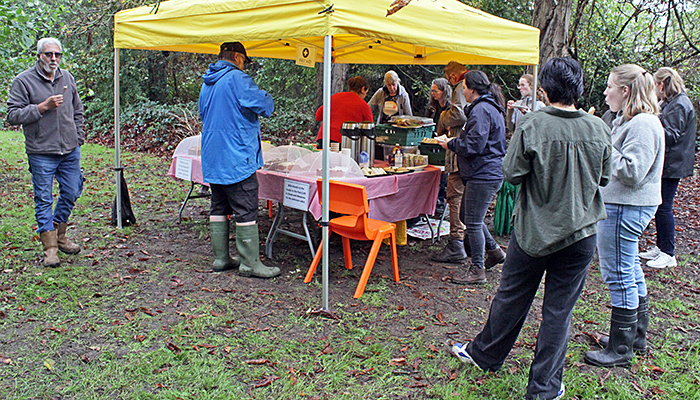 Buffet for participants
Buffet for participants
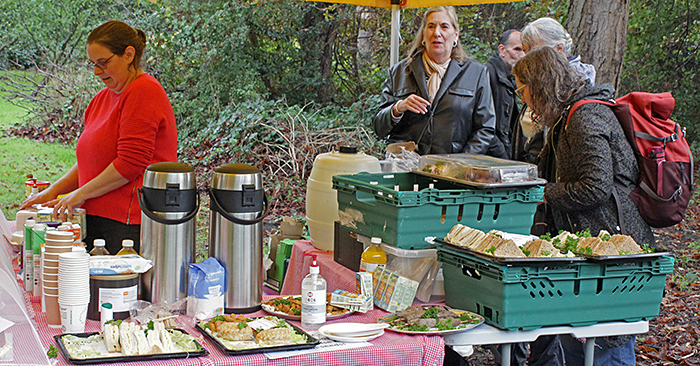 Buffet lunch
Buffet lunch
Quekett members Lisa and Nigel Ashby, Paul Smith and Alan Wood brought an assortment of microscopes, all running from batteries or power banks.
Alan Wood brought his Olympus SZ4045 stereomicroscope with an LED ring-light, and a small stereomicroscope (the STX Stereo Microscope sold on Amazon by GT Vision). Lisa Ashby brought a similar small stereomicroscope with inclined eyepieces that make it easier to use.
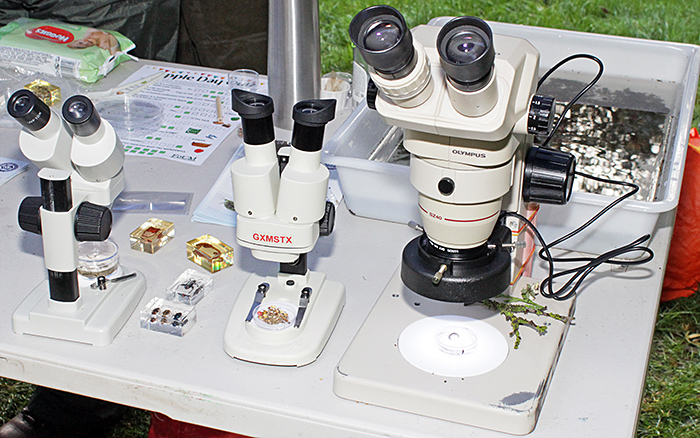 Stereomicroscopes
Stereomicroscopes
Paul Smith brought a small digital microscope with a built-in screen that can record stills and videos, and a small Telmu inverted microscope that is good for looking at aquatic specimens from below. The lamps in both microscopes were run from a powerbank. Paul also brought some magnifiers, some insects embedded in resin blocks, and several types of seeds held in coin capsules.
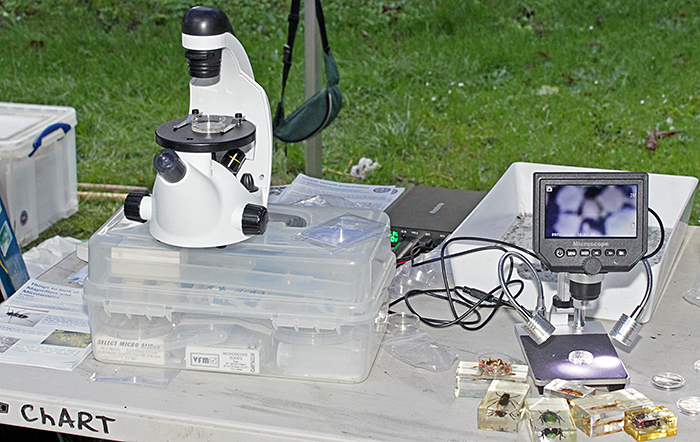 Inverted microscope and digital microscope
Inverted microscope and digital microscope
We also brought copies of Collins Field Guide to Freshwater Life (including the 1986 edition by R. Fitter & R. Manuel, very popular with Quekett members), and some free leaflets on using microscopes and observing pond life (available as PDFs from our Downloads page).
A few days before the event, we were worried that there was so little water in the Quaggy that we would not be able to take samples. However, Storm Babet arrived just in time, and the river had recovered. Nigel Ashby used a plankton net to collect specimens from the river. Carolina Pinto used a hand net to take a kick sample from the river. The samples were transferred into white dishes, and then we used a pipette or a tea spoon to transfer specimens into small plastic Petri dishes so that we could observe them under the microscopes.
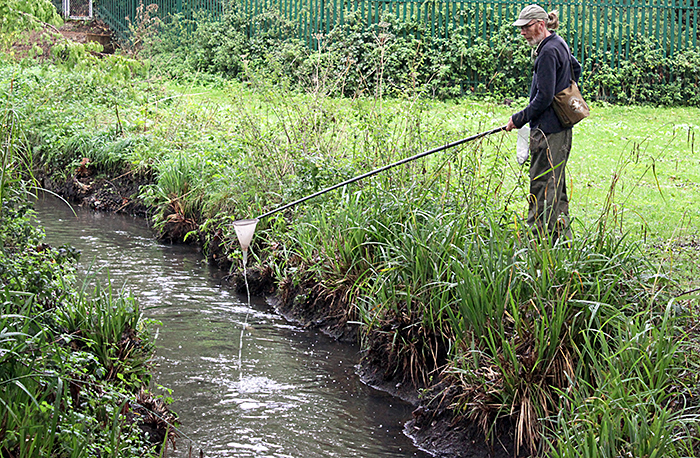 Nigel Ashby collecting from the River Quaggy
Nigel Ashby collecting from the River Quaggy
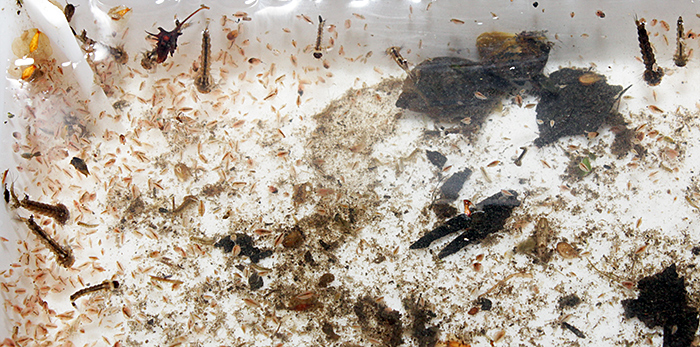 Specimens in a white dish
Specimens in a white dish
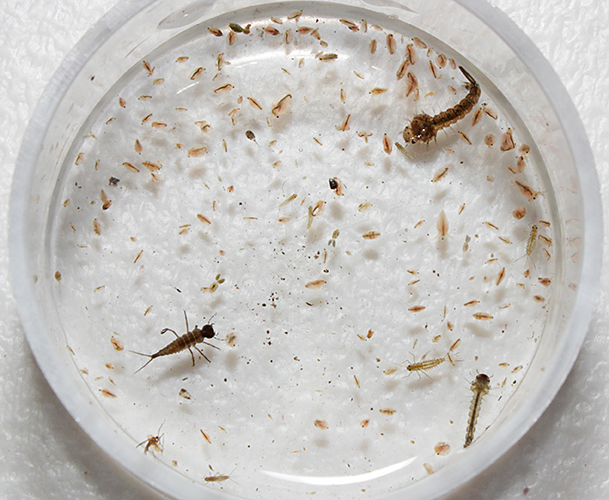 Specimens in a small Petri dish
Specimens in a small Petri dish
The specimens included waterfleas (probably Daphnia), freshwater shrimps (Gammarus), freshwater lice (Asellus), bloodworms (larvae of non-biting midges, Chironomidae), mayfly nymphs (Ephemeroptera), stonefly nymphs (Plecoptera), cranefly larvae (Tipulidae), mosquito larvae, leeches, pond snails and ramshorn snails. The specimens were returned to the river.
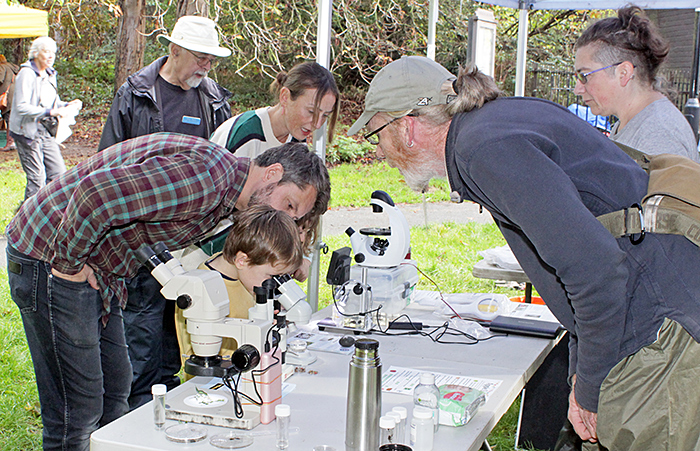 Visitors to the Quekett display (with Paul Smith, Nigel Ashby and Lisa Ashby)
Visitors to the Quekett display (with Paul Smith, Nigel Ashby and Lisa Ashby)
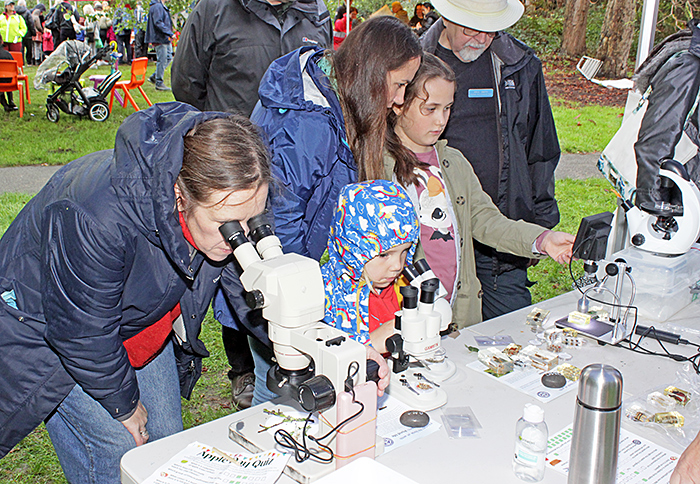 Visitors to the Quekett display (with Paul Smith)
Visitors to the Quekett display (with Paul Smith)
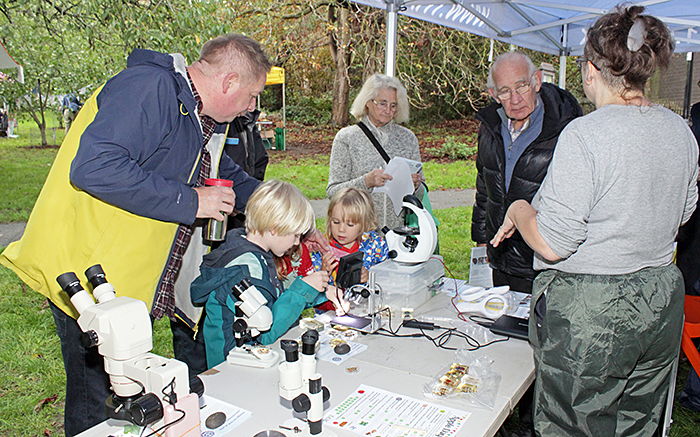 Visitors to the Quekett display (with Lisa Ashby)
Visitors to the Quekett display (with Lisa Ashby)
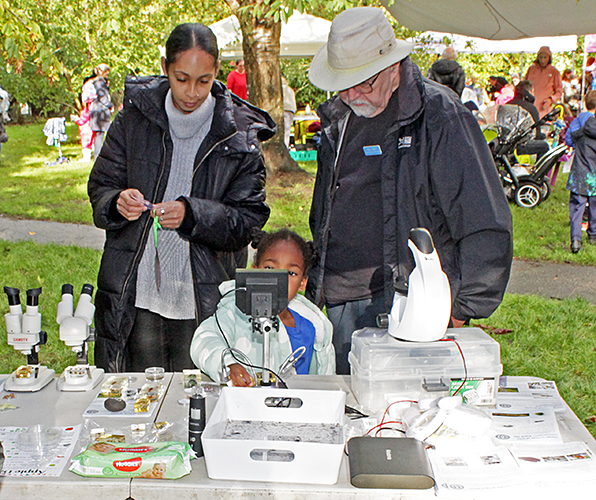 Visitors to the Quekett display (with Paul Smith)
Visitors to the Quekett display (with Paul Smith)
There was a quiz for children, who needed to visit all of the stands in order to find all of the answers. We were included, and the answer was “microscopes”.
 Apple Day Quiz
Apple Day Quiz
Carolina Pinto and Jo Goad from Thames21 explained to the adult visitors that the water quality in the River Quaggy is being affected by a polluted ditch that drains into it. Thames21 has started work on improving the quality of the water by diverting the ditch through a new wetland area that will have shallow pools and reeds that will clean the water. The project will also create a habitat for marginal plants and wildlife.
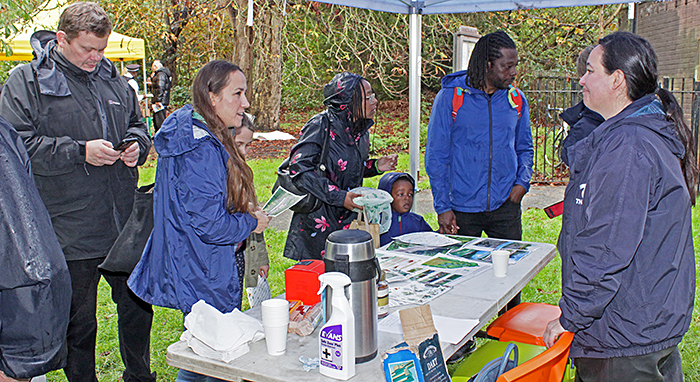 Carolina Pinto (right) with visitors to the Thames21 display
Carolina Pinto (right) with visitors to the Thames21 display
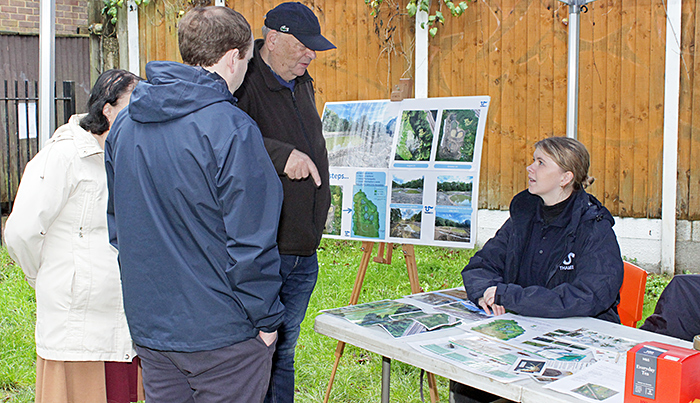 Jo Goad with visitors to the Thames21 display
Jo Goad with visitors to the Thames21 display
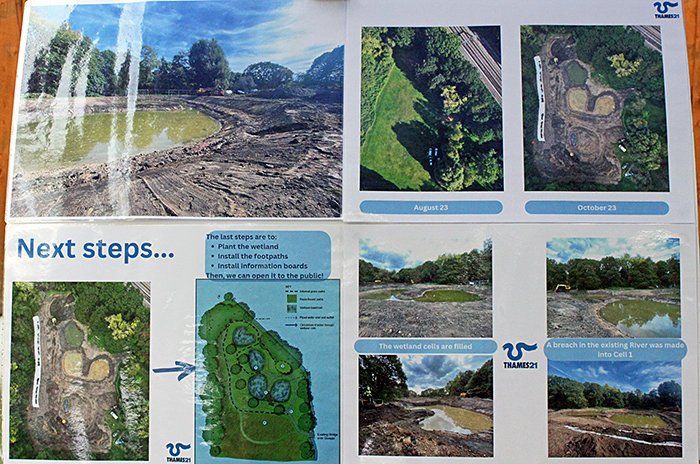 Progress report on the SUDS project in Chinbrook Meadows
Progress report on the SUDS project in Chinbrook Meadows
Once the earthworks are completed, plants will need to be introduced, footpaths and boardwalks will need to be constructed, and information boards will need to be installed.
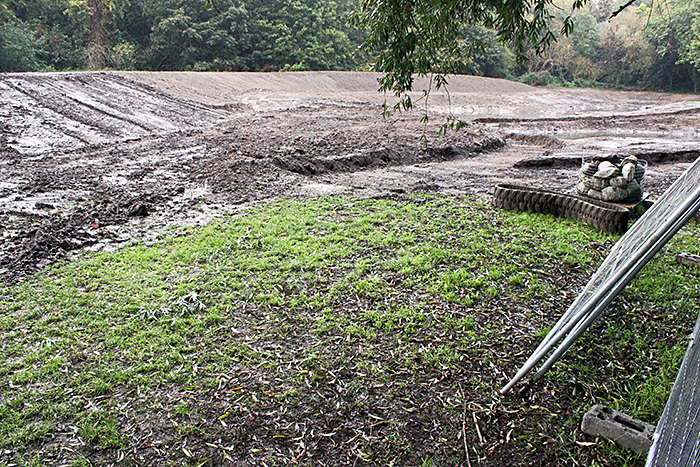 Earthworks for the SUDS project
Earthworks for the SUDS project
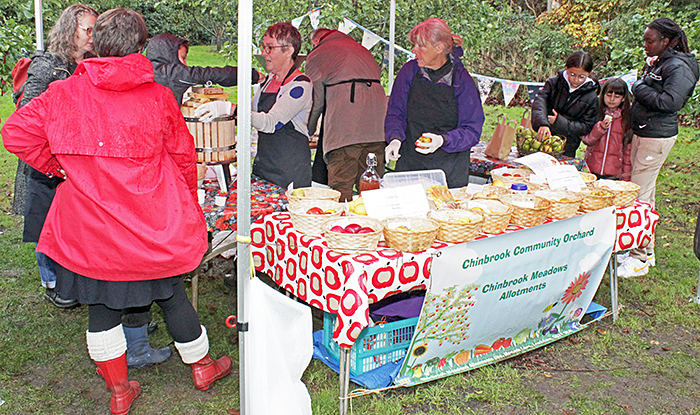 Display of apples
Display of apples
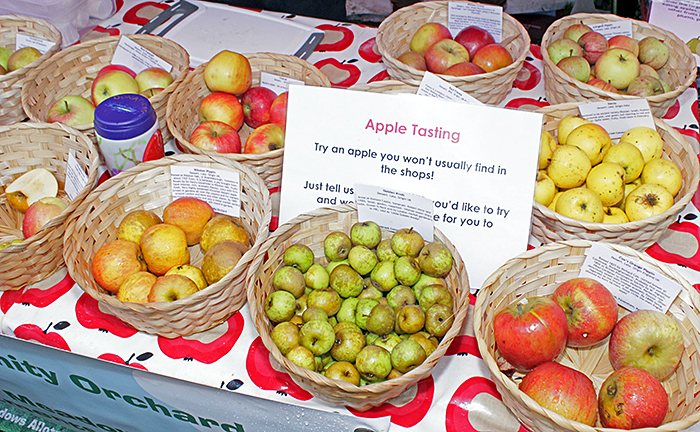 Unusual varieties of apple
Unusual varieties of apple
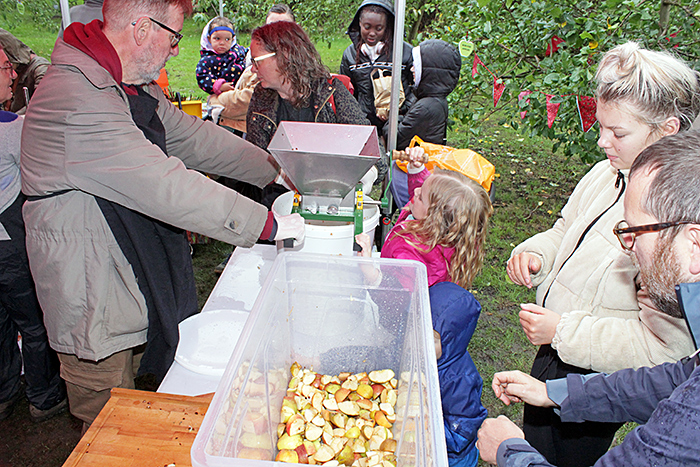 Crushing sliced apples to make apple pomace
Crushing sliced apples to make apple pomace
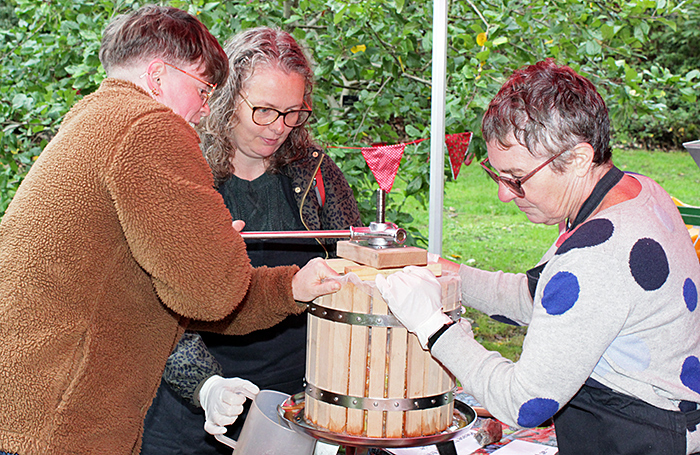 Pressing apple pomace to make apple juice
Pressing apple pomace to make apple juice
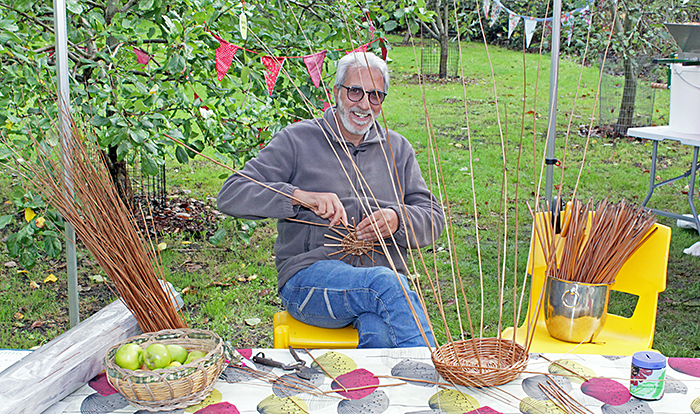 Weaving baskets for apples
Weaving baskets for apples
There were activities to keep the children entertained.
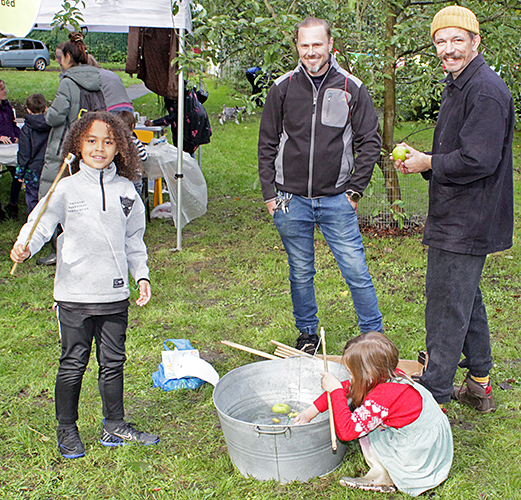 Bobbing for apples
Bobbing for apples
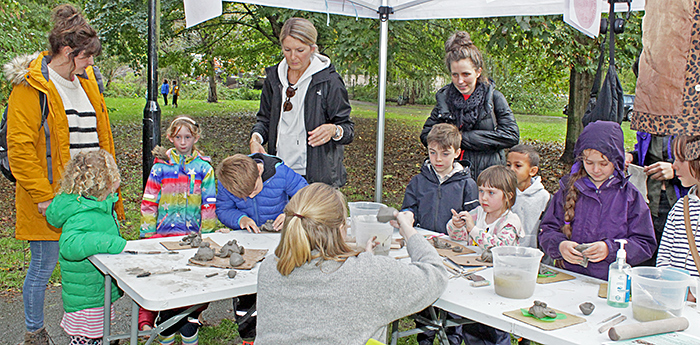 Making clay frogs
Making clay frogs
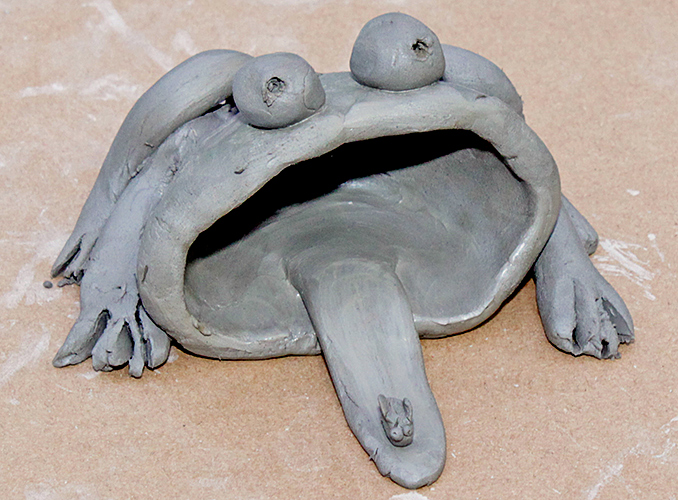 Clay frog
Clay frog
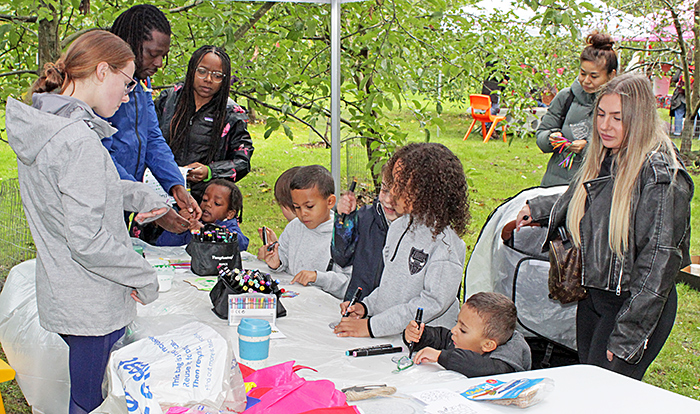 Colouring
Colouring
When it was not raining, there was live music to keep us all entertained.
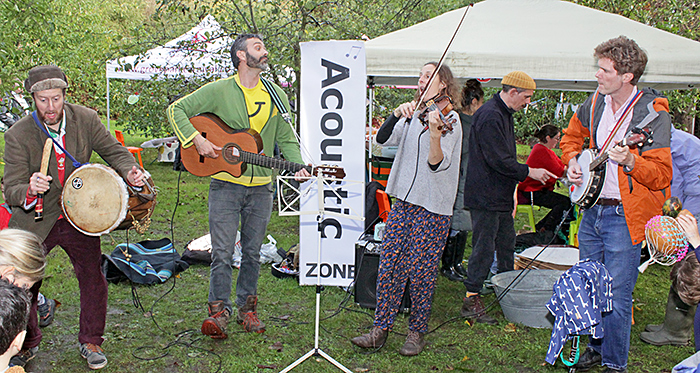 Live music
Live music
Report and photographs by Alan Wood

